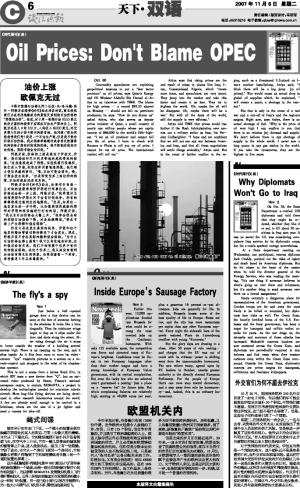Nov 5
Earlier this year, 12,000 applications flooded into Brussels for what could be among the most coveted jobs on the Continent: bureaucrat. With only 125 available spots, the competition was fierce and attracted many of Europe's brightest. Candidates must be fluent in two European languages other than their mother tongue and have a strong knowledge of European Union government, with its myriad complexities. But even the lucky few who are selected aren't guaranteed a posting—just a place on a "reserve list" for future jobs. But who's complaining Salaries are relatively high, starting at 48,000 euros per year, plus a generous 16 percent ex-pat allowance. Jobs are generally for life. In addition, Brussels boasts some of the best quality of life in Europe. Rents are low, and the city has more restaurants per capita than any other European capital. Every night the sidewalk bars of the newly restored Place de Luxembourg overflow with young "Eurocrats."
But the glory days are drawing to a close. After 50 years of rule making—and charges that the EU was out of touch with its citizens—power is shifting away from the unaccountable bureaucrat. The new reform treaty, agreed upon by EU leaders in October, awards greater authority to the directly elected European Parliament. For the people of Europe that's one more step toward democracy, and a step away from rule by bureaucracy—and, indeed, this is no ordinary bureaucracy.

